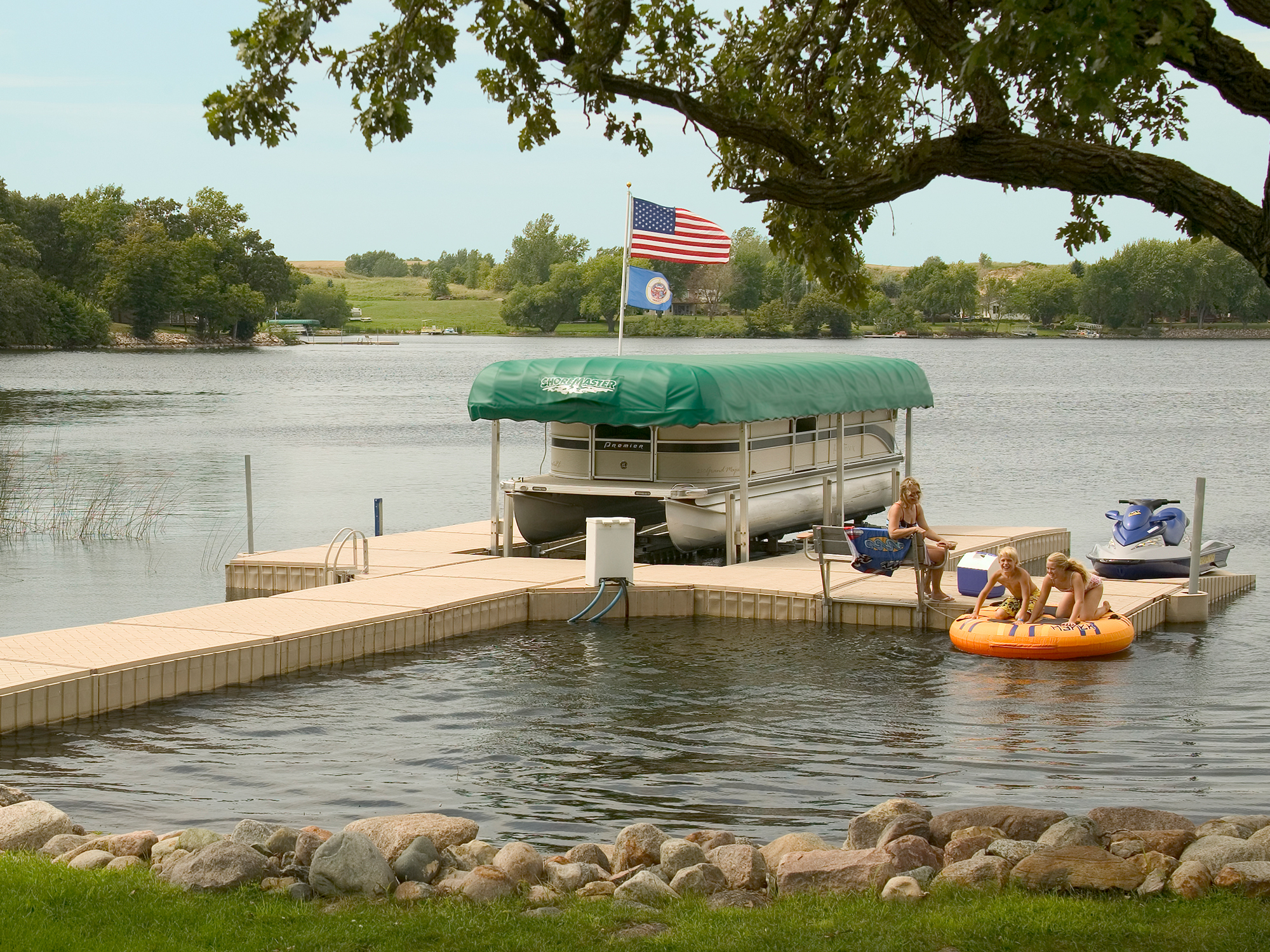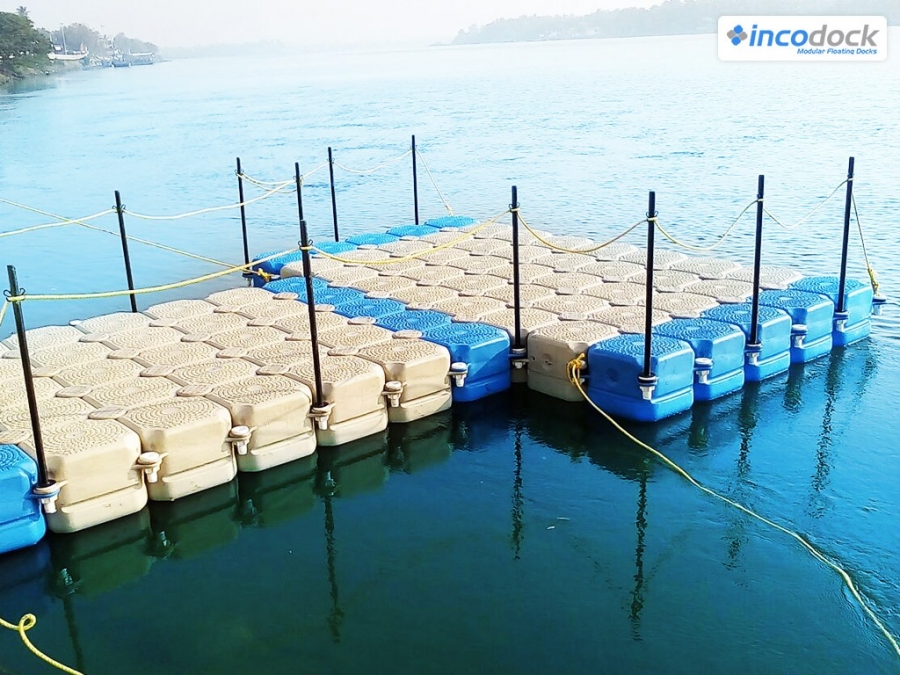Benefits of Dealing With an Established Floating Dock Company for Peace of Mind
Benefits of Dealing With an Established Floating Dock Company for Peace of Mind
Blog Article
Floating Docks: The Perfect Option for Versatile Water Gain Access To
Floating docks present a compelling option for a range of water accessibility needs, using adaptability that goes beyond typical mooring options. The modular nature of floating docks promotes customization, providing to details demands.
Benefits of Floating Docks
Floating docks deal countless advantages that enhance water accessibility for numerous applications. Their capacity to fall and rise with transforming water degrees makes them particularly advantageous in atmospheres with varying tides or seasonal variations. This versatility guarantees that vessels can easily moor without problem for the water's depth, giving a dependable system for entertainment, business, and commercial uses.
Furthermore, floating docks are frequently created from sturdy products that resist rust, making them suitable for long-term use in aquatic atmospheres. Their installation is usually less invasive than standard set docks, reducing the ecological impact and promoting quicker deployment (floating dock company). This flexibility enables for less complicated moving or reconfiguration according to customer requirements or ecological modifications
Security is another crucial benefit; floating docks can provide stable access for people disembarking or boarding from boats and reduce the threat of crashes connected with unstable surface areas. In addition, they can be created to suit a range of devices, such as fenders and cleats, enhancing functionality. Generally, floating docks represent a reliable remedy for boosting water accessibility throughout varied fields while advertising security and environmental sustainability.

Sorts Of Floating Docks
Various kinds of floating docks deal with different needs and environments, each created with specific features to enhance performance. The most common kinds consist of modular docks, which contain interlacing areas that permit easy personalization and expansion. These docks are ideal for recreational use, as they can be tailored to fit different boat sizes and water conditions.
An additional popular choice is the stationary floating dock, which continues to be anchored in position but floats with changing water degrees. floating docks. This kind is particularly matched for locations with marginal tidal fluctuations, offering stable accessibility for angling or swimming. Furthermore, there are drive-on docks, which feature a sloped design that permits watercrafts to easily drive on and off, making them suitable for individual boat and smaller vessels
For business applications, heavy-duty floating docks are readily available, built from enhanced products to withstand considerable lots and rough aquatic atmospheres. Last but not least, green floating docks use lasting products and layouts to decrease ecological influence, frequently integrating attributes like plants to support neighborhood wild animals. Comprehending the various types of floating docks makes certain that individuals can choose one of the most proper service for their certain demands.
Setup Refine Introduction
A successful setup of floating docks requires careful preparation and attention to information to ensure ideal performance and security. The first step involves analyzing the site problems, including water deepness, existing, and potential challenges. This evaluation informs the option of the ideal dock materials and design tailored to the certain atmosphere.
Following, obtaining needed authorizations is vital, as several jurisdictions have guidelines relating to building on water bodies. Once consents are safeguarded, the installation can proceed. Begin by preparing the foundation, which may include anchoring systems or pilings tailored to the dock type and local problems.
Complying with the structure configuration, construct the dock areas according to producer specifications. Make certain that all parts are safely secured and straightened to hold up against ecological anxieties. Placement the dock in the assigned area, guaranteeing it is degree and secure.

Maintenance Tips and Finest Practices
After the installation process is total, ongoing maintenance plays a crucial role in making sure the longevity and capability of floating docks. Regular evaluations need to be carried out to recognize any kind of indications of damages, wear, or damage - floating dock company. Look for any kind of loosened fittings, splits, or separation in the dock sections, as these can jeopardize structural honesty
Cleansing the dock is necessary to remove debris, algae, and various other accumulation that can impact its appearance and security. Read Full Article Make use of a gentle stress clean occasionally to maintain cleanliness without causing damage this hyperlink to the surface. Additionally, using a protective sealant every few years can help improve longevity and stand up to ecological wear.
Take notice of the mooring lines and supports, guaranteeing they are free and protected from deterioration. Replace any kind of abject components immediately to avoid risks. Seasonal modifications might likewise be needed; throughout severe weather problems, repositioning or enhancing the dock can protect against damages.
Applications for Floating Docks
Floating docks serve a multitude of applications, accommodating both leisure and commercial demands. In entertainment settings, they supply smooth accessibility to waterways for tasks such as boating, fishing, and swimming. Their flexible nature permits for setup in differing water degrees, making sure secure and risk-free access no matter tidal changes.
Commercially, floating docks are indispensable for marinas and waterside organizations. They facilitate the docking of vessels, allowing efficient filling and dumping of products. Their modular layout permits very easy expansion or reconfiguration to suit altering business demands, making them suitable for boat services, trip procedures, or angling charters.
Furthermore, floating docks are used in environmental applications such as marine research and habitat repair. They can act as systems for scientific studies, keeping track of water quality, or carrying out wildlife surveys without troubling delicate environments.
In commercial contexts, floating docks are used in building and construction projects, offering access to hard-to-reach locations for equipment and employees. Their adaptability, longevity, and marginal effect on the setting make them an optimum choice for a wide variety of applications, improving both functionality and access in various water-based settings.
Conclusion
In final thought, floating docks represent an ideal service for diverse water accessibility needs, owing to their adaptability, longevity, and modular style. Floating docks serve as a useful why not find out more property for entertainment, commercial, and ecological jobs, making sure reliable access to rivers and advertising sustainable methods in water settings.
Floating docks present an engaging remedy for a variety of water accessibility requires, supplying versatility that goes beyond typical mooring alternatives.Floating docks offer various benefits that boost water accessibility for different applications. Overall, floating docks represent an efficient remedy for improving water access throughout diverse markets while advertising safety and ecological sustainability.
An additional prominent alternative is the fixed floating dock, which remains secured in area yet floats with altering water levels.In final thought, floating docks represent an optimal solution for varied water gain access to needs, owing to their versatility, resilience, and modular design.
Report this page